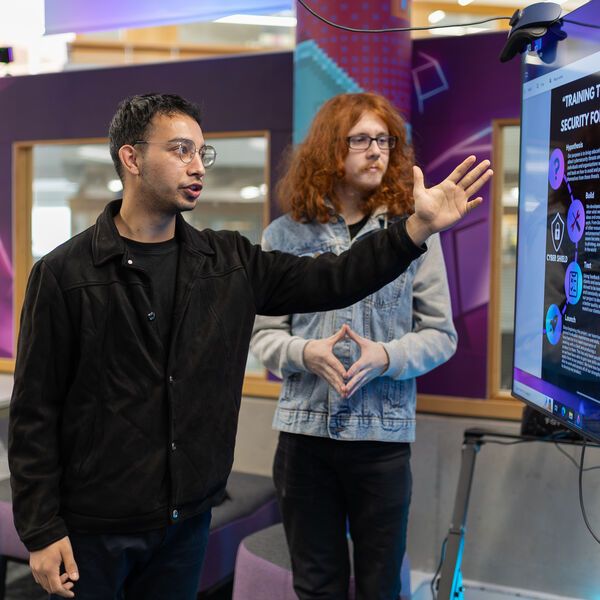Year 1 (national level 4):
Programming and Software Development (30 credits)
How is software designed, built, and tested for real world use? This practical module introduces you to programming and software engineering, equipping you with the skills to build reliable, secure, and scalable applications. Using languages like Python and C#, you’ll learn core concepts such as variables, control structures, functions, and data structures, applying them in real world scenarios, including embedded systems and microcontrollers. You’ll explore object-oriented programming, debugging, and secure coding practices, alongside development methodologies like Agile and Waterfall. You'll also cover requirements analysis, UML diagrams, and software testing using both manual and automated tools.
Computer Systems and Networks (30 credits)
Ever wondered how your computer handles complex tasks in just milliseconds? In this module, you'll dive into the core systems that power modern computing, from how processors execute instructions to how networks keep the world connected. You’ll explore how computers “think,” communicate, and operate efficiently behind the scenes. You’ll learn how CPUs and memory systems work together and how computers understand and process information. Through hands-on experience with industry standard tools and technologies, you’ll develop both the technical understanding and practical skills needed to design, manage, and optimise modern computing environments, preparing you for a broad range of careers in tech.
Full Stack Web Development (30 credits)
This module will introduce you to full-stack web development, teaching you how to create dynamic, responsive, and data driven web applications from start to finish. You'll begin with the foundations of great web interfaces, focusing on user experience, accessibility, and responsive design. You'll learn how to structure web pages using semantic HTML and style them using modern CSS techniques like Flexbox, Grid, animations, and transitions. As you progress, you'll add interactivity with JavaScript and connect to external data using APIs. On the server side, you’ll work with scripting languages like PHP to process user input, manage sessions, and interact with databases such as MariaDB. You’ll also explore modern front-end frameworks like React, learning component-based architecture, state management, and API integration. Finally, you’ll cover deployment strategies to take your applications live in a professional environment.
Game Design and Development (30 credits)
This module is a practical introduction to game development, perfect for beginners, with no prior programming experience needed. You'll explore the full game creation process, from understanding the roles involved to designing engaging gameplay using core concepts like mechanics and dynamics. Through hands-on workshops, you’ll work with professional game engines, create simple visual assets, and learn the basics of programming logic and scripting to bring your ideas to life. You'll learn how to identify and fix common issues, ensuring a smooth, bug-free experience for users. Designed with employability in mind, this module gives you direct experience with the tools and processes used in the gaming industry, preparing you for future careers in game development, interactive media, and beyond.
